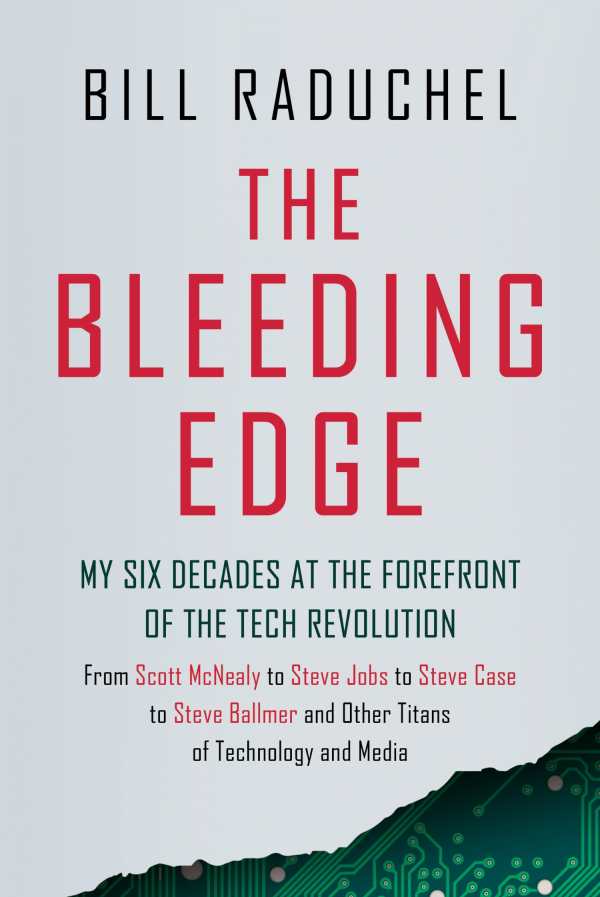The Bleeding Edge
My Six Decades at the Forefront of the Tech Revolution (from Scott McNealy to Steve Jobs to Steve Case to Steve Ballmer and More Titans of Technology)
- 2023 INDIES Finalist
- Finalist, Science & Technology (Adult Nonfiction)
The Bleeding Edge is a breathless account of a storied technology sector career; its Silicon Valley insights are illuminating, entertaining, and instructive.
Bill Raduchel’s memoir The Bleeding Edge is a whirlwind curriculum vitae featuring tech giants, tech history, and lessons in business.
Born into the Sputnik generation, Raduchel studied economics at Michigan State University before entering graduate school at Harvard. After receiving his PhD, becoming an assistant professor, and serving as assistant dean of admissions, Raduchel left Harvard and entered the tech industry. Over the next four decades, his career as a business executive and strategic advisor brought him to the “bleeding edge” of technology that was new and innovative but unproven and risky. From Sun Microsystems and AOL Time Warner to Xerox, McGraw Hill, and beyond, Raduchel walked among tech giants, watching tech history being made in real time. His takeaway from nearly five decades in the tech industry: “People do business with people.”
Raduchel’s concise, controlled language and clipped storytelling is engaging and informative. The book is insightful when it comes to closed-door business dealings and the behind-the-scenes realities—of the business world in general and of the tech industry in particular. Charming anecdotes (such as regarding how a dead camel wound up floating in a Palm Springs Marriott swimming pool) and intriguing details (as on the origins of The Sopranos) make for a compelling story, as do appearances by tech giants like Steve Jobs.
In addition to tracing Raduchel’s professional history, the book serves as an insightful look into the tech revolution as well. From the preinternet days to the rise of AI, the book shares how technology “has profoundly transformed our world.” For tech leaders (or those hoping to join their ranks), Raduchel shares career advice and defines a leader’s four main tasks: awareness, attraction, architecture, and alignment. And he exhibits confidence in addressing his main theme: that businesses are made up of people and that learning to work with and for others is paramount.
The book moves at a relentless pace—sometimes to its detriment—zooming from one story to another, and often before the full weight of its previous points have had time to settle in. One anecdote describes a post-9/11 “misunderstanding” in which an international jet was grounded by order of President Bush, who authorized that everyone on board be killed. The passengers—including Raduchel—were taken from the plane at gunpoint, questioned, and released. But this entire tale, from kill order to freedom, occurs in four sentences with little lead-in or contextualization, reducing a thrilling story to a blink-and-you’ll-miss-it anecdote. In addition to this narrative reticence, the book often resorts to vague summaries, as with “I think I contributed to a lot of conversations and had some good relationships.” While Raduchel’s voice is humble, straightforward, and entertaining, such bare-bones treatments of major moments are underwhelming.
The Bleeding Edge is a breathless account of a storied technology sector career; its Silicon Valley insights are illuminating, entertaining, and instructive.
Reviewed by
Hannah Pearson
Disclosure: This article is not an endorsement, but a review. The publisher of this book provided free copies of the book and paid a small fee to have their book reviewed by a professional reviewer. Foreword Reviews and Clarion Reviews make no guarantee that the publisher will receive a positive review. Foreword Magazine, Inc. is disclosing this in accordance with the Federal Trade Commission’s 16 CFR, Part 255.

